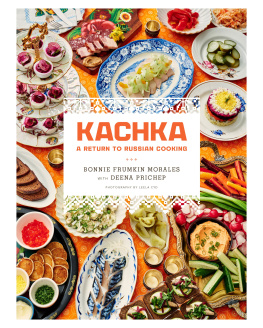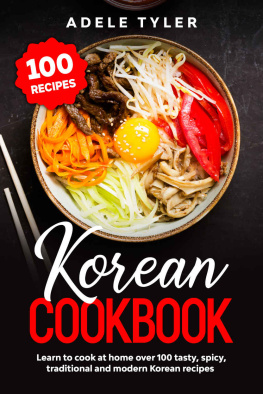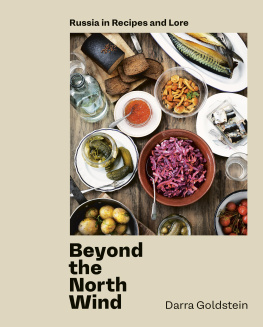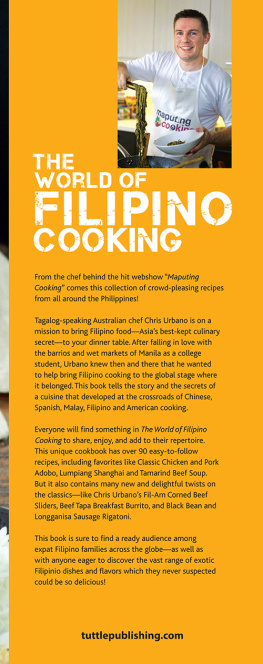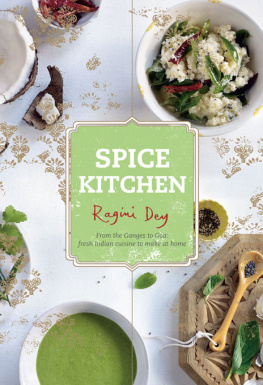Contents
Guide
KACHKA
A RETURN TO RUSSIAN COOKING

BONNIE FRUMKIN MORALES
WITH DEENA PRICHEP
PHOTOGRAPHY BY LEELA CYD


In memory of my babushka Rakhil Moiseevna Frumkina.
Though we never met, your courage, tenacity, and wit move me every single day.
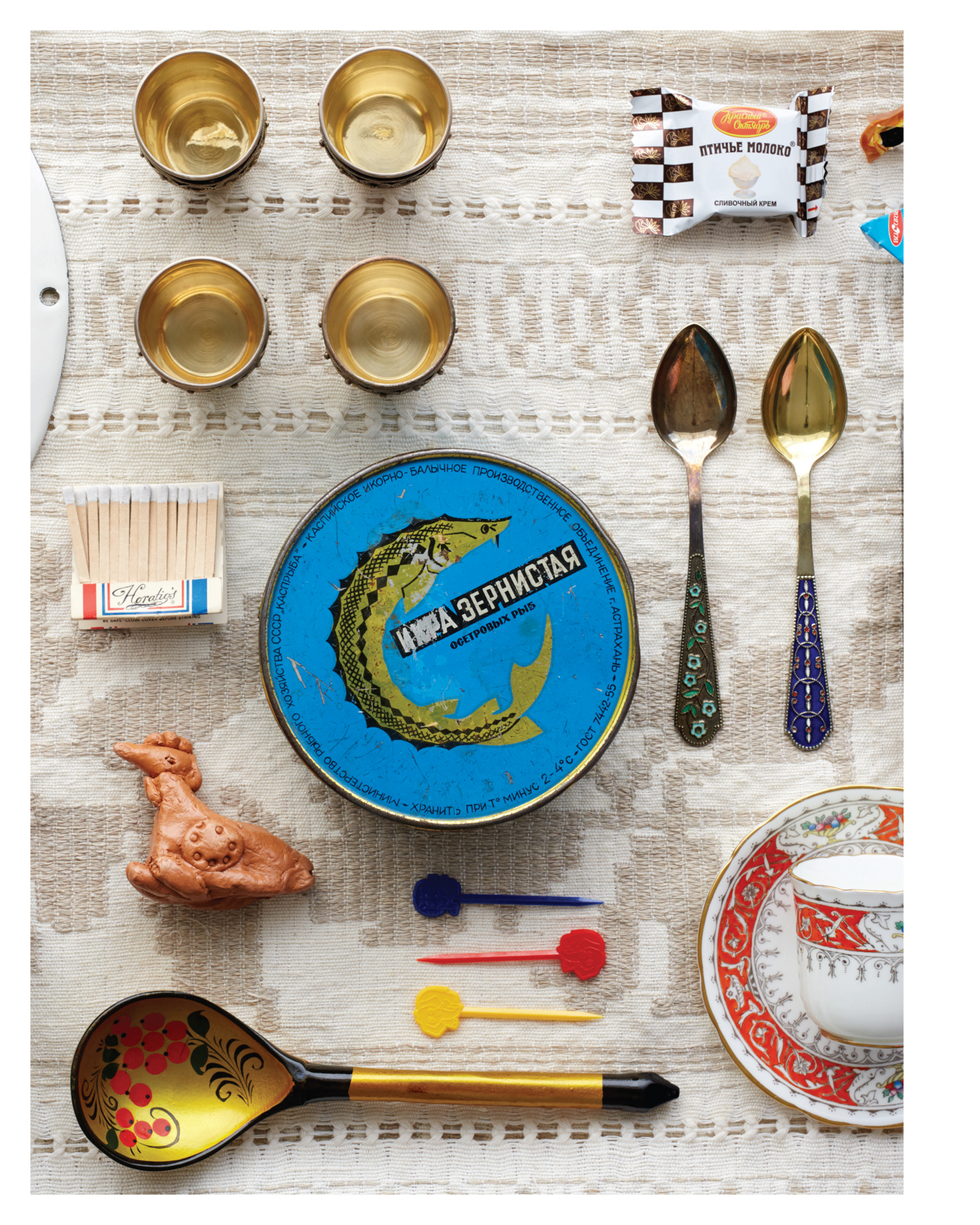
The author and publisher have provided this e-book to you for your personal use only. You may not make this e-book publicly available in any way. Copyright infringement is against the law. If you believe the copy of this e-book you are reading infringes on the authors copyright, please notify the publisher at: http://us.macmillanusa.com/piracy.

WHAT IS RUSSIAN FOOD, ANYWAYS?
When most people think of Russian food, they go blank. They think of borschif they think of anything at all. But the real picture of Russian food?
Before its collapse, the Soviet Union covered a full sixth of the earths land mass with growing seasons ranging from pomegranates to permafrost. The resulting canon includes carefully composed bites full of briny-sharp pickles and smoked Baltic fish; the saffron-and-cilantro-scented Silk Road legacy of the easternmost republics; French-inflected holdovers from czarist palates; and fragrant wild berries and heady forest mushrooms preserved from too-brief summers. Its far more than cabbage and beetsalthough if you know what youre doing, you can also create beautiful dishes with these salt-of-the-earth ingredients. And no matter what the region, its not just hearty warm-you-in-winter dishes, but also garden-based summer feasts, and zakuskithe bright and varied little mezze-like bites that enliven any celebration, and come with their own ritualized etiquette of hosting and toasting. And its this foodand feelingwe bring to Kachkas table.
YOURE OPENING WHAT KIND OF RESTAURANT?!?
This lavishly set tablethe one I grew up around as a child of Soviet immigrantsis barely known in the New World. My husband and I learned this over and over again when, in 2013, we set out to open Kachka in Portland, Oregon. When you open a restaurant, you meet a lot of faces: contractors, city inspectors, financiers, vendors, potential employees, food writers, and on and on. And with each one, we had some variation of this same conversation:
| STRANGER: | So whats your business? |
| ME: | Were opening a restaurant! |
| STRANGER: | Oh, how great! What kind of food? |
| ME: | Food from the former Soviet Union. |
| STRANGER: | [blank] |
| ME: | like Russia, Belarus, Georgia, Latvia |
| STRANGER: | [long pause] Oh, is Belarus near Moscow? |
| ME: | No, its a country west of Russia. |
| STRANGER: | [confusion] |
| ME: | Anyway, its basically Russian food with a lot of influence from countries surrounding it. |
| STRANGER: | Huh. So what kind of food is that |
| ME: | Well, that would be like asking someone to explain what French or Italian food is in just one sentence. Its well I mean, theres lots of cabbage |
| STRANGER: | [interjects] Look at the time! Ive got that thing I need to go do. Uh, good luck with your restaurant |
Kachka opened its doors in April 2014. And although most diners were unfamiliar with Russian food, they gave us a shotand keep coming back for more. Walking into Kachka is like walking into a party, pulling up a seat at the whole sprawling, eclectic, joyous table of the former Russian Empire. As Vladimir Vysotsky (aka Russian Bob Dylan) and post-Soviet rock alternate from the speakers, diners tear up over cabbage rolls that remind them of their long-departed grandmothers (be they from Ukraine, Poland, or Pittsburgh). Or they toast the night with spirituous cocktails and vodka infused with everything from sea buckthorn berries to dill flowers. Or they find themselves, to their great surprise, falling for beef tongue.

MY JOURNEY BACK TO RUSSIAN FOOD
Nowadays I can hold forth on the wonders of Russian cuisine for days and days, losing myself in Soviet-era culinary manuals and handwritten recipe cards. But growing up as a child of immigrants from the former
Soviet Union, I didnt exactly extol the virtues of this food from the rooftops. I was born in suburban Chicago in 1981, a year after my parents immigrated. And like all good first-generation kids, I wanted nothing to do with my familys rich culinary legacyI wanted to be American. I was embarrassed by the jars of pickles fermenting in the basement and cold hot dogs snuck into lunch boxes. I wished for the standardized perfection of Lunchables. I wanted to go out to White Castle, not White Nights, the glitzy Russian banquet hall of my Chicago youth. Id warn visiting friends before they came to dinner, and pray that my mom not make anything too foreign. And then I went through a period where I decided that Russian food was just brokenbut I could fix it with healthy lashings of the French techniques I learned as an eager young culinary school graduate. Then I met my husband.


Clockwise from top left: My dad and I sing Russian songs after dinner with friends; The Iron Curtain falls in the late eighties, and our relatives start emigrating. Our American family grows!; The American dream realizedour first car (Im the bundle)!; Israel joins the family and joins in the fun.
When I first took Israel home to meet my family during our early days, he wanted to make a good impression. And, in a Russian Jewish family, that means eating. It took a few family dinners before I realized he wasnt just cleaning his plate to be polite. Juicy-yet-crunchy sauerkraut, lively sorrel soup, and braised short ribsthey were exciting yet approachable, familiar but like nothing hed ever tasted. And not just thatthere was the ritual of the table, the series of toasts, and the family who came together over long, food-filled evenings.

